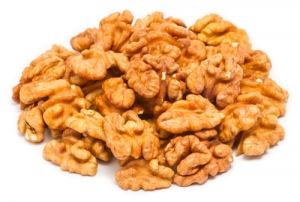Omega-3 Fatty Acid Facts And How They Relate To Hormone Replacement Therapy
Facts about Omega-Three Fatty Acids
When you are using HRT (hormone replacement therapy), you should make sure to include good sources of omega-3 fatty acids in your diet, including ALA (alpha-Linolenic acid), DHA (Docosahexaenoic acid), and EPA (Eicosapentaenoic acid).

ALA is an essential dietary part of HGH, and Testosterone programs, including programs that involve sermorelin and hCG diet.

You should be sure your diet includes DHA when you are doing any of our hormone injections programs (especially HGH and Sermorelin)

Like ALA and DHA, EPA plays an essential role in your diet when exercising and using growth hormone and testosterone.
Omega-three Fatty Acids are one of the many essential nutrients needed to live a long and healthy life. Unfortunately, many people do not get enough of these nutrients in their everyday diet. Omega-three Fatty Acids provide several benefits and play a role in many vital human body processes. There is strong evidence that two Omega-Threes, DHA and EPA, can help the cardiovascular system regulate blood pressure and control triglyceride levels.

Much research is being performed on the potential benefits of Omega-Threes today, and there is strong evidence that these nutrients may vastly improve health in several areas, from depression to rheumatoid arthritis.
Omega-Threes may sound complicated, but this article will explain the essential things about these nutrients. There are three Omega-Three Fatty Acids, ALA, DHA, and EPA, and they all perform interrelated functions within the human body.
The Basics of Omega-Three Fatty Acids
Omega Three Fatty Acids are also referred to as Essential Fatty Acids because they are essential for the proper function of the human body. Unlike some animals, humans cannot make their Omega-3s, so we have to get what we require from our diets. It's also necessary to consume appropriate amounts of all three essential fatty acids, DHA, EPA, and ALA, because our bodies are not very good at converting them into one another, and it has the potential to create physiological deficiency.
Essential Fatty Acids have a wide variety of benefits. They are believed to be a significant factor in alleviating inflammation all over the body, including the joints and the blood vessels. However, one issue with taking Omega-Three Supplements is that they can thin the blood if taken too large a dose. This issue is most concerning for patients already taking blood thinners and anticoagulants.
There are several different forms of Essential Fatty Acids, but there are three that are most important. Two of the most vital are DHA and EPA, which can be found in significant amounts in fish. A third Essential Fatty Acid is ALA, which can be found in some plants, such as Flax, and the body can convert some ALA into EPA and DHA. Whereas Flax and Flax Seed can provide ALA, Algae Oil Supplements can provide DHA.
Although ALA provides health benefits, most nutrition experts and biologists agree that EPA and DHA acquired from fish products positively impact the human body's processes. EPA and DHA can be found on their own in various animal products, but the only natural way to get both EPA and DHA in your diet is through algae and fatty fish.
Some forms of algae only provide DHA. ALA is primarily found in plants, and the body can convert ALA into DHA and EPA when combined with energy through biological processes within the human body.
The Benefits of Omega-Three Fatty Acids
Controls Triglyceride Levels in the Blood Stream
There have been several scientific studies that have shown that the consumption of Essential Amino Acids via fish oil capsules can bring elevated Triglyceride levels back to normal. Elevated Triglycerides are widely documented to be associated with an increased risk of heart disease, stroke, and heart attack. Evidence shows that consuming DHA on its own can bring Triglyceride Levels down. Evidence is inconclusive thus far concerning how this impacts cardiovascular risks.
Reduces Risk and Severity of Depression
There is some robust evidence that countries and cultures with diets high in Essential Fatty Acids are less likely to experience symptoms of depression. Studies have also shown that combining Fish Oil with antidepressant medication appears to have the ability to amplify the benefits of the medication. Finally, fish oil can soften the depressive symptoms associated with Bipolar Disorder.
Reduces the Severity and Frequency of Asthma Symptoms
A diet with high levels of Essential Fatty Acids can alleviate inflammation, a core component of the asthmatic response. It appears that fish oil supplements can help asthma patients cope with their disease. Still, at this point, it is unclear exactly to what extent Omega-Three Supplementation can mitigate the effects of asthma. There is insufficient evidence to show the capability of Essential Fatty Acids to restore lung function or lessen the need for Asthma medication.
Alleviates the Symptoms of Rheumatoid Arthritis
Rheumatoid Arthritis is another condition that Essential Fatty Acid Supplementation alleviates significantly. There is sound evidence that DHA/EPA Supplements can both lessen joint pain, alleviate stiffness, and increase the range of movement. Omega-Three Capsules also enhance the success of drugs taken to treat inflammation.
Improves Attention and Cognition for Patients with Attention-Deficit/Hyperactivity Disorder
There is some evidence that fish oil supplements can lessen the symptoms of ADHD in pediatric patients, enhancing their cognitive capacity. More studies need to be performed to gauge the effectiveness of this form of treatment properly; however, so fish oil capsules should not be substituted for other ADHD treatments which have been proven to be effective, although there is no harm in supplementing prescribed treatment with Essential Fatty Acid Supplementation.
Prenatal Health Benefits of Omega-Threes
Omega-three Fatty Acids significantly affect infants' neurological and visual development. At this point, the body of evidence is incomplete regarding whether fish oil supplements taken during breastfeeding or pregnancy impact the baby's health. Despite the lack of conclusive evidence regarding Omega-Threes for such purposes, there seems to be no downside to taking supplements during pregnancy and breastfeeding.
Dementia and Alzheimer's Disease Benefits
Much study is going on regarding the impact of Omega-Three Fatty Acids on Dementia and Alzheimer's disease. It must be stressed at this point that the research needs to go through further vetting, but it appears that Omega-Threes can reduce the risk of Dementia and Alzheimer's Disease.
There is also evidence that Essential Fatty Acid Supplements may also have the ability to slow down the rate of cognitive decline in patients with Alzheimer's-associated Dementia, and it also seems to lessen the impact of memory issues related to age in general.

DHA, in particular, seems to provide the optimal benefits for Dementia, Alzheimer's, and Memory. More studies need to be completed to prove the preliminary data. Still, fish oil capsules appear to be a beneficial factor concerning age-related memory loss and Alzheimer's and Dementia.
What is the Difference between Omega-Threes and Omega-Sixes?
In recent years, the importance of Omega-Threes has become more widely known, but many people still don't fully grasp the difference between the two primary forms of fatty acids. Omega-Sixes are very common in the American Diet because they come from various processed foods and many types of meat and oils.
It is pretty much a given that Americans get enough Omega-Six Fatty Acids in their diet, so it's crucial to ensure that Omega-Threes are purposefully included in the diet because of their relative scarcity in the American Diet. Most Americans don't get enough Essential Fatty Acids, which can easily be achieved through minor diet changes or adding Fish Oil or other supplementation.
Even though there is universal agreement that it is essential to consume Omega-Threes, there is some debate regarding whether the ratio of Omega-Threes to Omega-Sixes is essential. Some argue that a balance tipped too far toward Omega-Sixes increases the risk and severity of some chronic conditions. In contrast, other medical professionals are not convinced that the ratio is necessary or simply getting enough of one and not too much of the other.
They also argue that Omega-Sixes does provide some health benefits, and we need to make sure that we aren't suggesting that people reduce their intake of Omega-Sixes too far. For now, just ensure you get enough Essential Fatty Acids in your diet and don't go overboard with Omega-Six Fatty Acids.
Omega 3 fatty acids foods - Omega 3 fatty acids significantly benefit the brain.
Sources of Essential Omega-Three Fatty Acids
In general, acquiring Essential Fatty Acids from dietary sources rather than supplements is most beneficial. Coldwater fish have the highest levels of Omega-Threes, and some of the best sources of these nutrients include:

- Tuna

- Lake Trout

- Sturgeon

- Sardines

- Wild Salmon (Farm-raised salmon has a lower concentration but is still an option) - Salmon is an excellent source of omega-3 fatty acids.

- Mackerel

- Herring

- Bluefish

- Anchovies
Omega-3 fatty acids are vital because they provide anti-inflammatory properties, feed the brain, and help maintain the cardiovascular system.
Most nutrition professionals suggest eating a meal including these fish two or three times every week.
Dietary Sources of ALA
Fish are the best sources to get the Essential Fatty Acids that the body needs for normal function, but several plants contain ALA, which the body can convert into DHA and EPA. Adding these to your diet can be beneficial since eating fish a few times a week is only recommended.
Good sources of ALA include:

- Soybean Oil

- Olive Oil

- Canola Oil

- Flax Seed

- Walnuts
It is important to note that most common sources of ALA are also high in calories, so they should be consumed responsibly. However, they also provide quite a punch regarding nutrient transfer.
Supplementary Sources of Omega-Three Fatty Acids
If you decide to turn to supplementary sources of Essential Amino Acids, discuss this with your physician to ensure that you find a supplement that effectively fits your needs. Nutrition experts generally suggest one gram of EPA and DHA from fish oil capsules for patients suffering from heart disease.
Your physician may recommend taking as much as four grams of Fish Oil each day for patients suffering from certain medical conditions. Only take more than one gram of Essential Fatty Acids supplements a day with the guidance of a medical professional.
Omega Three supplements come with some risk of side-effect, most commonly very minor. The most commonly experienced side effects are gas and indigestion. This is primarily because you are taking an oil supplement, which may not sit perfectly on every stomach, especially when taken on an empty stomach. If you experience these symptoms, try to find a supplement with an enteric coating designed to mitigate the risk of digestive side effects.
These supplements also have the potential to increase bleeding risk in some patients. Individuals that are suffering from conditions that are associated with bleeding risk or are taking anticoagulants or blood thinners are at the highest level of risk. Some examples of drugs that amplify this risk are Brilinta, Efficient, Plavix, Coumadin, and some non-steroid anti-inflammatories.
If you suffer from any medical condition that increases the risk and severity of bleeding or are taking any listed drugs or drugs like them, always talk to a doctor before starting any form of Omega-Three Supplementation.
Tips for Getting the Essential Fatty Acids that Your Body Needs
Choose Your Fish Responsibly
Fatty Fish indeed have the highest levels of Omega-Three Fatty Acids, but some species are more likely to contain toxins, including PCBs and Mercury. Some fish more likely to contain these contaminants and should be eaten sparingly are shark, tilefish, wild swordfish, and mackerel. There is also a chance that any farm-raised fish will contain elevated levels of any number of contaminants, dependent upon the conditions in which the fish was raised.
Young children and women that are pregnant should avoid all of these forms of fish. The average person should not eat more than seven ounces of these types of fish each week. Smaller fish like wild salmon and wild trout have much lower levels of these contaminants and can be eaten more often and safely.
Add Algae Oil or Fish Oil to Your Diet
Fish oil capsules have both DHA and EPA, and Algae Oil has DHA. Fish oil would be superior for most people, but vegetarians and people who don't eat fish would still be served effectively with algae oil capsules.
Because supplements provide high levels of Omega-Threes all at once, talk to a medical professional before utilizing these supplements. Depending on your health and current medications, your physician may have particular warnings or recommendations regarding using these supplements.
You should take omega-3 fatty acids with your hormone replacement therapy (HRT) program (HGH, testosterone, sermorelin, or HCG diet); call us to discuss how this supplement can help supercharge your HRT program.
References
The Facts on Omega-3 Fatty Acids
Different fatty acid types
ALA - alpha-Linolenic acid, WikiPedia
DHA - Docosahexaenoic acid, Wikipedia
EPA - Eicosapentaenoic acid, Wikipedia
- 0001 Xylitol is a Natural, Plant-Sourced and Low-Calorie Sweetener [Last Updated On: January 8th, 2025] [Originally Added On: January 12th, 2021]
- 0002 The Secret Behind Keeping the Weight Off for Good -- No More Losing and Gaining Cycles! [Last Updated On: January 17th, 2025] [Originally Added On: January 13th, 2021]
- 0003 The Cognitive Benefits of Starting a CoQ10 (Coenzyme Q10) Supplement Regimen [Last Updated On: January 12th, 2025] [Originally Added On: January 14th, 2021]
- 0004 It's Time to Understand Why Vitamin C is Critical for Our Health and Longevity! [Last Updated On: January 10th, 2025] [Originally Added On: January 15th, 2021]
- 0005 Snoring is the Most Common Early Symptom of Sleep Apnea -- Do You Suffer From It? [Last Updated On: January 11th, 2025] [Originally Added On: January 16th, 2021]
- 0006 Vitamin-d Longevity Vitamin [Last Updated On: January 2nd, 2025] [Originally Added On: January 17th, 2021]
- 0007 Twenty Simple Weight Loss Tips That Can Change Your Life [Last Updated On: November 14th, 2025] [Originally Added On: January 18th, 2021]
- 0008 Twelve Ways To Control Cravings [Last Updated On: February 22nd, 2025] [Originally Added On: January 19th, 2021]
- 0009 The Truth About The Zone Diet [Last Updated On: November 13th, 2025] [Originally Added On: January 20th, 2021]
- 0010 The Truth About The Schwarzbein Principle [Last Updated On: November 12th, 2025] [Originally Added On: January 21st, 2021]
- 0011 The Truth About The Realage Diet [Last Updated On: November 11th, 2025] [Originally Added On: January 22nd, 2021]
- 0012 The Truth About The Origin Diet [Last Updated On: November 10th, 2025] [Originally Added On: January 23rd, 2021]
- 0013 The Truth About The Eat Right, Live Longer Diet -- Nourishing Food Equals Increased Longevity [Last Updated On: January 31st, 2025] [Originally Added On: January 24th, 2021]
- 0014 The Essential Roles Magnesium Plays For Our Energy Levels, Skin Youthfulness and Mental Health [Last Updated On: January 4th, 2025] [Originally Added On: January 25th, 2021]
- 0015 The Real Skinny On Vitamin B12. What It Can And Cannot Do For You [Last Updated On: March 23rd, 2025] [Originally Added On: January 26th, 2021]
- 0016 The Importance And Purpose Of Stress [Last Updated On: February 18th, 2025] [Originally Added On: January 27th, 2021]
- 0017 The Ideal Balanced Diet The Reality Of Healthy Eating [Last Updated On: November 9th, 2025] [Originally Added On: January 28th, 2021]
- 0018 The Effects Of Cortisol On The Body [Last Updated On: April 27th, 2025] [Originally Added On: January 29th, 2021]
- 0019 Sixteen Common Foods That Increase The Cancer Risk [Last Updated On: November 8th, 2025] [Originally Added On: January 30th, 2021]
- 0020 Should You Consider Intermittent Fasting? [Last Updated On: October 19th, 2025] [Originally Added On: January 31st, 2021]
- 0021 Can Caloric Restriction Help You Lose Weight And Live Longer? [Last Updated On: October 18th, 2025] [Originally Added On: February 1st, 2021]
- 0022 How Does Poor Sleep Rob Vitality And Health? [Last Updated On: October 17th, 2025] [Originally Added On: February 2nd, 2021]
- 0023 Nine More Natural Ways To Relieve Anxiety [Last Updated On: October 16th, 2025] [Originally Added On: February 3rd, 2021]
- 0024 Metabolism Boosting Tips For Losing Weight And Feeling Great [Last Updated On: October 13th, 2025] [Originally Added On: February 4th, 2021]
- 0025 Juicing Pros And Cons [Last Updated On: March 22nd, 2025] [Originally Added On: February 5th, 2021]
- 0026 Insomnia Guide [Last Updated On: October 12th, 2025] [Originally Added On: February 6th, 2021]
- 0027 How To Lose Weight With Human Growth Hormone [Last Updated On: October 11th, 2025] [Originally Added On: February 7th, 2021]
- 0028 How Safe Is Monosodium Glutamate AKA Msg? [Last Updated On: October 14th, 2025] [Originally Added On: February 8th, 2021]
- 0029 How Is Sleep Apnea Diagnosed And Treated [Last Updated On: October 9th, 2025] [Originally Added On: February 9th, 2021]
- 0030 Hidden Sources Of Sugar In Common Foods [Last Updated On: October 8th, 2025] [Originally Added On: February 10th, 2021]
- 0031 How Would You Like to Potentially Add 14 Healthy and Youthful Years to Your Life Span? [Last Updated On: October 10th, 2025] [Originally Added On: February 11th, 2021]
- 0032 Four Reasons Why Healthy Sleep Encourages Weight Loss [Last Updated On: October 7th, 2025] [Originally Added On: February 12th, 2021]
- 0033 Drink Right To Live Well [Last Updated On: October 6th, 2025] [Originally Added On: February 15th, 2021]
- 0034 Consumers Of Processed Meat Put Themselves At Risk [Last Updated On: October 5th, 2025] [Originally Added On: February 16th, 2021]
- 0035 Comparing The Same Mass Of Muscle And Fat [Last Updated On: February 19th, 2025] [Originally Added On: February 17th, 2021]
- 0036 Watermelon Health Food? The Benefits Of L-citrulline And Watermelon [Last Updated On: October 4th, 2025] [Originally Added On: February 18th, 2021]
- 0037 Alcohol Appears To Impact Sperm Quality [Last Updated On: October 3rd, 2025] [Originally Added On: February 19th, 2021]
- 0038 The Benefits of Selenium - Should You Take a Selenium Supplement? [Last Updated On: February 9th, 2025] [Originally Added On: April 8th, 2021]
- 0039 Selenium and its Impact on Your Health and Hormones [Last Updated On: March 3rd, 2025] [Originally Added On: April 8th, 2021]
- 0040 Scientifically Proven Benefits Of Turmeric The Indian Spice [Last Updated On: March 18th, 2025] [Originally Added On: April 27th, 2021]
- 0041 Natural Remedies for Heartburn or Acid Reflux [Last Updated On: February 18th, 2025] [Originally Added On: May 22nd, 2021]
- 0042 What the Heck Is a Raisin, Anyway and Why Would I Want to Eat One? [Last Updated On: May 18th, 2025] [Originally Added On: June 10th, 2021]
- 0043 Fat-Focused Diet May Help Boost Testosterone [Last Updated On: February 17th, 2025] [Originally Added On: June 10th, 2021]
- 0044 Chia Seeds: More Than Just a Fad [Last Updated On: April 11th, 2025] [Originally Added On: June 24th, 2021]
- 0045 Intermittent Fasting Boosts Growth Hormone, and Improves Cognitive Health [Last Updated On: March 4th, 2025] [Originally Added On: May 2nd, 2022]
- 0046 Growth Hormone, Nutrition, and Diet Affect Longevity [Last Updated On: February 14th, 2025] [Originally Added On: May 6th, 2022]
- 0047 How Your Health is Affected by Brown and White Fat [Last Updated On: February 14th, 2025] [Originally Added On: May 17th, 2022]
- 0048 Tesamorelin Boosts HGH Levels and Burns Belly Fat [Last Updated On: February 14th, 2025] [Originally Added On: May 21st, 2022]
- 0049 Build Muscle With Tofu - Don't Fear Soy [Last Updated On: November 7th, 2025] [Originally Added On: July 12th, 2022]
- 0050 Balancing HGH Levels with Weekly Sogroya [Last Updated On: November 5th, 2025] [Originally Added On: September 1st, 2022]
- 0051 Pecans Are Amazing [Last Updated On: February 19th, 2025] [Originally Added On: November 22nd, 2022]
- 0052 The Benefits of Fenugreek [Last Updated On: September 5th, 2025] [Originally Added On: November 24th, 2022]
- 0053 The Foods To Eat To Increase Stem Cells [Last Updated On: March 6th, 2025] [Originally Added On: December 7th, 2022]
- 0054 The Versatility of Pecans [Last Updated On: February 19th, 2025] [Originally Added On: February 9th, 2025]
- 0055 Understanding The Concept: A Pound Of Muscle Vs. A Pound Of Fat [Last Updated On: February 19th, 2025] [Originally Added On: February 11th, 2025]
- 0056 The Aging Enigma: Unravelling the Web of Human Growth Hormone Decline [Last Updated On: February 17th, 2025] [Originally Added On: February 12th, 2025]
- 0057 Rekindling the Flame: How a Fat-Friendly Diet Can Ignite Testosterone Levels [Last Updated On: February 14th, 2025] [Originally Added On: February 13th, 2025]
- 0058 Unlocking Your Inner Fountain of Youth: The Magic Elixir of HGH Injections for Women [Last Updated On: February 17th, 2025] [Originally Added On: February 14th, 2025]
- 0059 Effective Strategies for Controlling Cravings [Last Updated On: February 17th, 2025] [Originally Added On: February 17th, 2025]
- 0060 Overview of Hormone Replacement Therapy and the Role of Intermittent Fasting [Last Updated On: February 22nd, 2025] [Originally Added On: February 22nd, 2025]
- 0061 Understanding the Power of Stem Cells [Last Updated On: February 24th, 2025] [Originally Added On: February 24th, 2025]
- 0062 The Role of Selenium in Health and Hormones [Last Updated On: February 26th, 2025] [Originally Added On: February 26th, 2025]
Word Count: 2147






